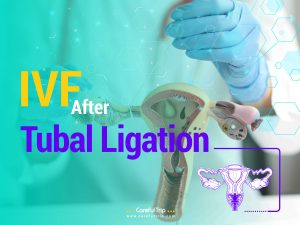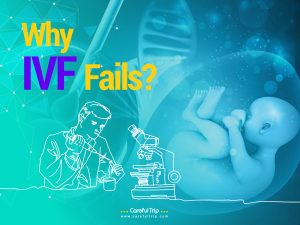
Introduction
The journey to parenthood can be challenging for many couples, especially those who face fertility issues. In recent years, assisted reproductive techniques have emerged as a beacon of hope for couples struggling to conceive. Intracytoplasmic sperm injection (ICSI) is a highly effective fertility treatment that has helped countless couples achieve their dreams of starting a family. This article thoroughly explores ICSI treatment, covering its process, advantages, and how it compares to traditional IVF treatment. By understanding the intricacies of ICSI and its role in fertility treatments, couples can make informed decisions about their reproductive journey and the best course of action.
The Process of ICSI Treatment
The ICSI treatment process begins with ovarian stimulation, where the woman is given medications to encourage the development of multiple eggs. Once the eggs are mature, they are retrieved through a minimally invasive procedure known as transvaginal ultrasound aspiration. Meanwhile, sperm samples are collected from the male partner or a donor, and the most viable sperm are selected for the ICSI procedure. Using a specialized micromanipulation system, a single sperm is injected directly into the egg. The fertilized eggs are then cultured in the laboratory for several days before being transferred to the woman’s uterus in hopes of implantation and pregnancy.
Factors Affecting ICSI Success Rates
Several factors can influence the success rates of ICSI treatment, including the woman’s age, ovarian reserve, and sperm quality. The younger the woman, the higher the likelihood of successful implantation and live birth. A good ovarian reserve, which refers to the number of eggs available for fertilization, is crucial for achieving positive outcomes. Additionally, the quality of the sperm used in the ICSI procedure impacts the chances of fertilization and subsequent embryo development.
Risks and Considerations of ICSI Treatment
While ICSI treatment offers numerous benefits, it also carries some risks and considerations. As with any fertility treatment, multiple pregnancies, ovarian hyperstimulation syndrome, and ectopic pregnancies are possible. Furthermore, ICSI has a slightly increased risk of genetic and developmental issues, although the overall risk remains relatively low. Couples considering ICSI should discuss potential benefits and risks with their fertility specialist to make the most informed decision.
Financial Aspects of ICSI Treatment
The cost of ICSI treatment can be a significant factor for many couples. ICSI is typically more expensive than traditional IVF treatment due to the specialized equipment and expertise required. However, some clinics may offer financial assistance or payment plans to help couples manage the cost of treatment. It is essential to research and compare the costs of different clinics and consider additional expenses such as medications and travel.
Emotional Support During ICSI Treatment
Undergoing ICSI treatment can be an emotional journey filled with hope, anxiety, and uncertainty for couples. It is crucial to have a strong support system, whether through family, friends, or professional counseling. Many fertility clinics offer counseling services or can recommend support groups to help couples navigate the emotional challenges associated with fertility treatments.
CarefulTrip and MOM Infertility Treatment Center: A Partnership for Success
CarefulTrip, a healthcare facilitator in Iran, has partnered with the MOM infertility treatment center to offer top-notch IVF and ICSI treatments. By choosing CarefulTrip, couples can access affordable and high-quality fertility treatments, benefitting from the expertise of the MOM infertility treatment center’s skilled professionals. This collaboration ensures couples receive the best care on their path to parenthood.
Preparing for ICSI Treatment: Lifestyle and Preconception Health
A healthy lifestyle and optimal preconception health can significantly impact the success of ICSI treatment. Couples should maintain a balanced diet, exercise regularly, manage stress, and avoid exposure to harmful substances such as tobacco, alcohol, and drugs. In addition, both partners must undergo thorough health assessments, including screening for sexually transmitted infections, genetic disorders, and other potential health issues that could affect fertility or pregnancy outcomes. Couples can improve their chances of successful ICSI treatment by taking these proactive steps.
The Role of Acupuncture and Complementary Therapies in ICSI Treatment
Some couples may explore complementary therapies, such as acupuncture, to support their ICSI treatment journey. Acupuncture has been suggested to improve blood flow to the reproductive organs, regulate hormones, and reduce stress, which can be beneficial during fertility treatments. While research on the effectiveness of acupuncture in conjunction with ICSI treatment is limited, some studies have shown promising results. It’s important to consult with a fertility specialist before incorporating complementary therapies into an ICSI treatment plan to ensure they are safe and appropriate.
Cryopreservation and ICSI Treatment
Cryopreservation, or freezing eggs, sperm, and embryos, can play a significant role in the ICSI treatment process. Couples may freeze their eggs or sperm for future ICSI attempts if the initial treatment is unsuccessful or wish to preserve their fertility for future family planning. Similarly, surplus embryos resulting from ICSI treatment can be cryopreserved for future use, potentially reducing the need for additional invasive procedures. Cryopreservation offers couples flexibility and options in their fertility journey, making it an essential consideration when pursuing ICSI treatment.
The Future of ICSI Treatment and Assisted Reproductive Technologies
As technology and medical knowledge continue to advance, the future of ICSI treatment and assisted reproductive technologies look promising. Researchers continually explore new techniques and refinements to improve success rates, minimize risks, and expand access to fertility treatments. Innovations such as preimplantation genetic testing, advancements in embryo culture, and selection methods are just a few examples of progress in the field. With ongoing research and development, ICSI treatment and other assisted reproductive technologies will continue to evolve, offering hope and improved outcomes for couples struggling with infertility.
Ethical Considerations in ICSI Treatment
As with any medical procedure, ethical considerations must be considered when pursuing ICSI treatment. Some concerns include creating and potentially discarding surplus embryos, the increased risk of genetic and developmental issues, and the potential for multiple pregnancies. Couples should openly discuss these ethical considerations with their fertility specialist and make informed decisions aligning with their beliefs and values. Additionally, national and international guidelines have been established to ensure that ICSI treatment and other assisted reproductive technologies are practiced responsibly and ethically.
For more information, read:
IVF and ICSI for Same-Sex Couples and Single Parents: Legal and Ethical Considerations
Psychological Impact of ICSI Treatment on Couples
The psychological impact of ICSI treatment on couples cannot be underestimated. The emotional rollercoaster associated with fertility treatments can be overwhelming, with feelings of hope, disappointment, and anxiety taking a toll on mental well-being. Couples should prioritize self-care and consider seeking the support of mental health professionals or support groups specifically tailored to individuals undergoing fertility treatments. Open communication and mutual understanding between partners are also essential in navigating the challenges of ICSI treatment together.
Legal Aspects of ICSI Treatment
Legal aspects of ICSI treatment may vary depending on the country and jurisdiction in which the treatment is being performed. Laws and regulations may address issues such as donor anonymity, parental rights, and the use of frozen embryos in the event of separation or divorce. Couples should familiarize themselves with the legal framework governing ICSI treatment in their respective country and seek legal advice to ensure compliance and protect their rights and interests.
International Fertility Treatments and ICSI
Many couples explore international fertility treatments to access more affordable, high-quality care. With its growing medical tourism industry, countries like Iran have become popular destinations for couples seeking ICSI treatment. CarefulTrip, in collaboration with the MOM infertility treatment center, offers a comprehensive range of fertility treatments, including ICSI, at competitive prices. By considering international options, couples can access state-of-the-art fertility treatments and achieve their dream of parenthood without incurring excessive financial burdens.
For more information, read:
Summary
Intracytoplasmic sperm injection (ICSI) is a powerful fertility treatment that has helped countless couples achieve their dreams of starting a family. Couples can make informed decisions about their reproductive journey by understanding the intricacies of ICSI treatment, including its process, benefits, risks, and success rates. As they navigate the complex world of fertility treatments, couples should consider factors such as lifestyle, preconception health, complementary therapies, and the potential for international treatment options. By partnering with CarefulTrip and the MOM infertility treatment center, couples can access high-quality, affordable ICSI treatment and benefit from the expertise of skilled professionals dedicated to helping them achieve their goal of parenthood. With continued advancements in assisted reproductive technologies, the future of ICSI treatment and fertility care looks promising, offering hope and improved outcomes for couples facing infertility challenges.










.png)
.png)